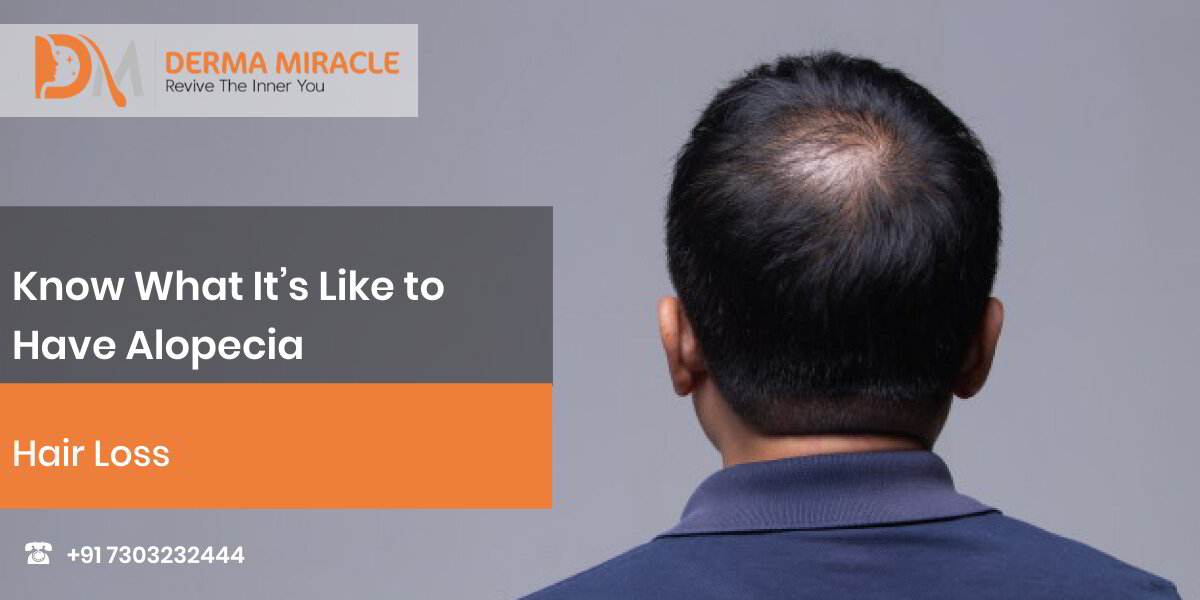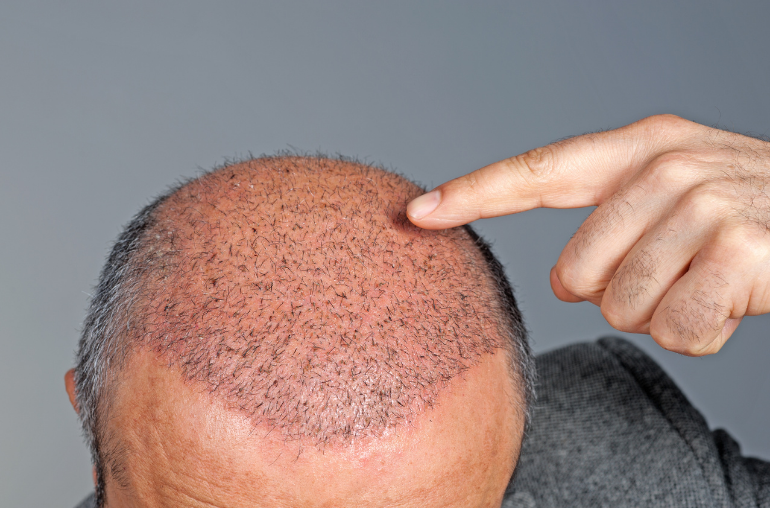
Table Of Content
-
Types of Alopecia
-
Symptoms of Alopecia
-
Treatments for Alopecia
-
Self-help methods for treating alopecia
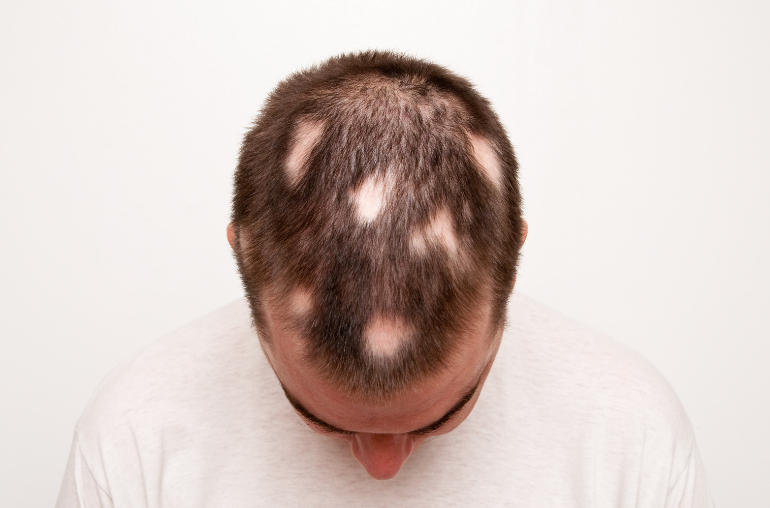
Types of Alopecia
Alopecia comes in 4 main forms, all of which affect people differently. The four types of Alopecia are androgenic alopecia, alopecia areata, alopecia totalis, and alopecia Universalis. Alopecia androgenicThis is the most common type of alopecia, and the degree of hair loss here varies based on your sex (male/female). In males, this kind of alopecia results in receding hairlines, while females will notice a drastic thinning of hair, but rarely see complete hair loss.
Alopecia Areata
Alopecia areata is an autoimmune disorder that can affect any sex, at any age. Hair loss comes in patches with this disorder and most often occurs on the scalp. However, they can occur anywhere on the body where hair grows.Alopecia totalis
As the name suggests, this form of alopecia results in total hair loss on the scalp and face. It is most common in males but can affect females as well.
Alopecia universalis
The rarest form and most severe form, alopecia universalis is the total loss of hair all over the body and often appears later on in life. It affects males and females and is the result of a gene mutation at birth.
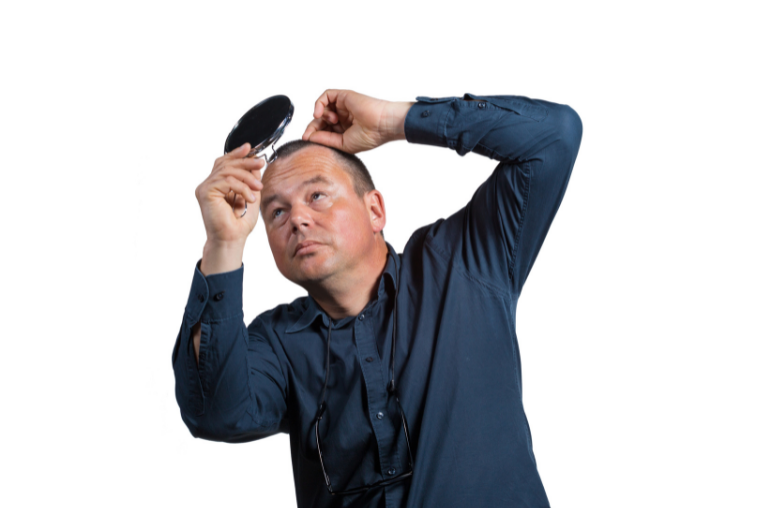
Symptoms of Alopecia
Finding the type of alopecia you have, your symptoms may vary and occur in different parts of the body. The most common symptoms of alopecia include:
- Thinning hair on the scalp
- Hair loss (often sudden, but can be gradual)
- Receding hairline
- Sudden hairless patches on scalp, face, or other parts of the body where hair grows
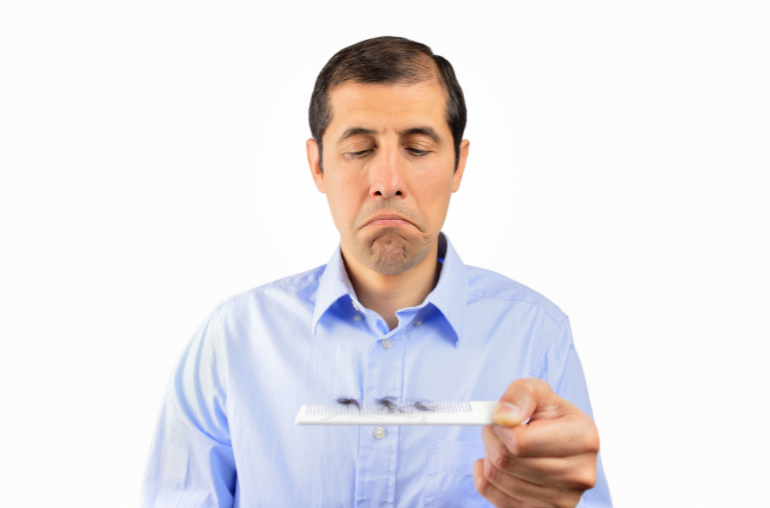
Treatments for Alopecia
Treatments for Alopecia are based on the underlying cause of the disorder. Alopecia is caused by a gene mutation or an autoimmune disorder, unfortunately, it has no cure.However, if the reason for your alopecia is something correctable such as the result of a new medication, a dietary change, stress, etc. then you have options for treating your alopecia including:
- Hair regrowth surgery
- Hair transplants
- Dietary changes
- Stopping the medicine your own where applicable
- Self-help methods
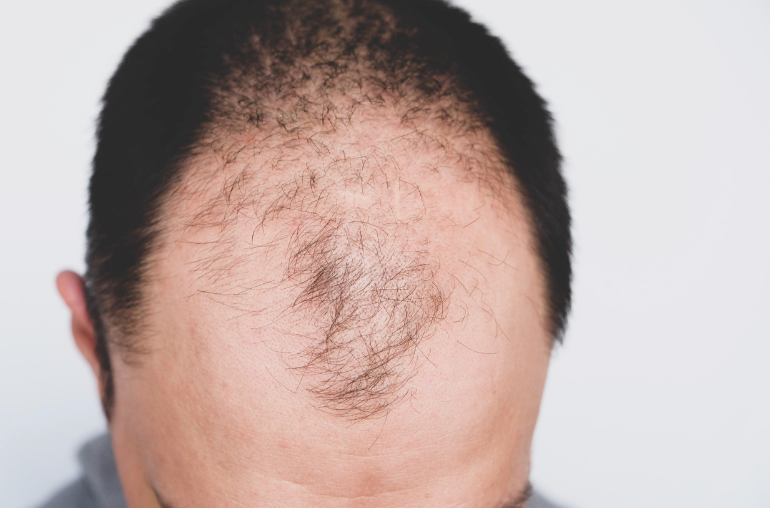
Self-help methods for treating alopecia
If your alopecia is treatable, consider the following natural methods for treatment of the disorder before jumping into hair regrowth or hair transplant treatments.
- Reduce your daily stress. Stress is a common cause for patchy alopecia so by reducing stress, you’ll see hair regrowth and prevent permanent damage.
- Avoid trauma to the scalp. This can be in varying forms, but the most common form is Trichotillomania. This is an anxiety disorder that results in someone pulling their hair out at the follicle. Over time, this causes trauma to the scalp and results in permanent hair loss.
- Eat a balanced diet. Our hair and scalp need nutrients just like the rest of our bodies. Be sure you are eating a diet rich in all the vitamins and minerals your hair needs such as vitamins A-E, Zinc, and Iron.
Alopecia can be a nerve-wracking disorder to face. Coming in four main forms, all of which have their own root cause, can be overwhelming so be sure you speak to a doctor about your concerns and potential treatment options. Even if your alopecia is not reversible, do your best to remain calm, eat a well-balanced diet, and take care of yourself to avoid further loss or a worsening of the disorder. Alopecia is common, you are not alone!
CONSULT DEMAMIRACLE
Know What It’s Like to Have Alopecia
ACT BEFORE IT’S TOO LATE

FREE CONSULTATION AVAILABLE
Contact Us
